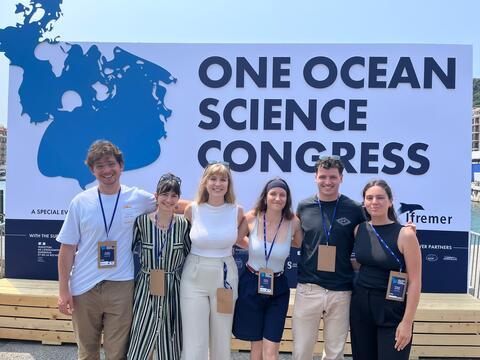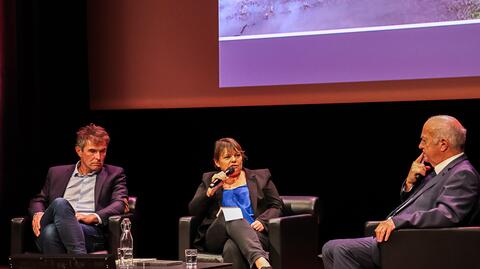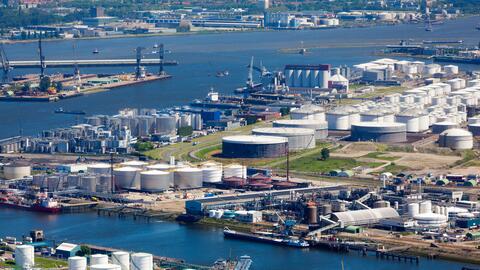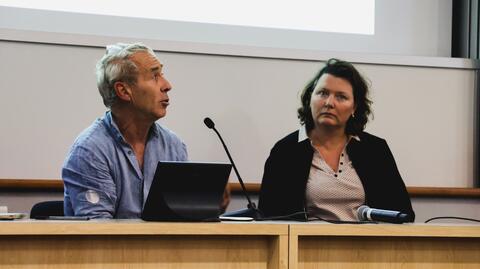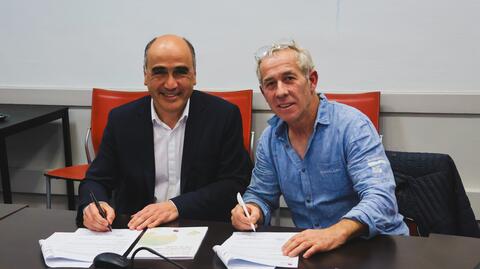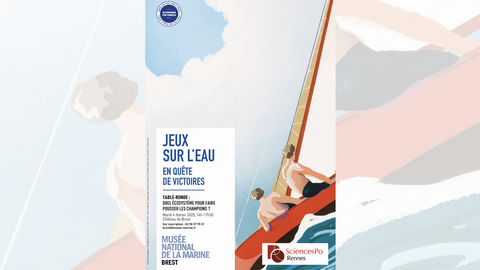Based in Brest, France, this program offers students a cross-disciplinary approach to the governance of densely populated areas and maritime issues in the context of coastal and maritime public policy.
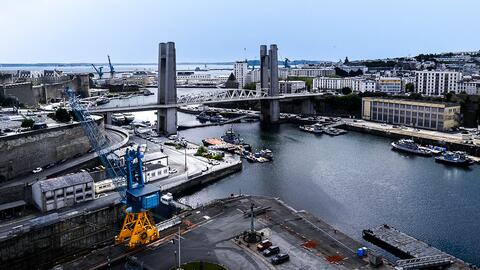
The program is the first of its kind in the Sciences Po network to focus on the impact of oceans on regional issues. It takes a cross-disciplinary approach that combines the humanities and social sciences (political science, public management, public law, urban planning and design, economics) and environmental sciences.
Learn more about the Oceans, Maritime Spaces and Global Maritimization Chair
- The program is open to applicants who have completed a three- or four-year year post-secondary degree.
- Applicants without a first-year Master’s (M1) degree can apply for recognition of previous professional experience.
- Previous experience abroad (an internship or student exchange program, for example) is preferred.
UE1 – Governance of regional ecosystems (110 hours)
- Public administration in the world of tomorrow: new public policy paradigms in a context of transition
- Major cities, regional constructs and development ecosystems
- Urban issues: building tomorrow’s cities
- Regional engineering strategy / Resilience strategy
- Governing cities and ecological transitions / Socio-ecosystemic considerations in regions
UE2 – Governance of public affairs and maritime issues in a context of transitions (100 hours)
- Maritimization of the world: understanding maritime issues
- Governance of maritime issues: maritime policymaking
- Environmental and oceanic issues: understanding change and its impact
- Managing maritime ecological resources
- Illustrations from the humanities and social sciences of environmentally driven change: challenges and perspectives
- Introduction to oceanography, environmental sciences and impact on human and terrestrial ecosystems
- Maritime issues, military strategy and regions
UE3 – Leadership in coastal city development: economic models of the future (90 hours)
- Port strategy: how to build city-port strategies and lead port-based economic activity
- Cities and maritime biodiversity: the role of nature in coastal cities
- The maritime metropolis: from design to implementation
- Tourism strategy and regional marketing in maritime regions
UE4 – Tools and methods for public action; co-developing public policy programs (84 hours)
- Methods in social sciences and public stakeholder sociology: deciphering stakeholder conduct / mapping controversy
Leadership tools: Crisis management, Negotiation techniques, Creative techniques in public policy design, Foresight tools, Communication strategy, Public policy evaluation, Introduction to change management
UE5 – Career environments and career planning (71 hours)
- Individual and group career building support
Student evaluation method: students prepare a group expert report (UE 1 – 15 ECTS credits) using [knowledge and skills] acquired in the first part of the program / a group case study (UE 3 – 15 ECTS credits) aimed at analyzing and understanding a major maritime city, its region, stakeholders and challenges / Preparation and presentation of an apprenticeship report (UE 2, 4 and 5 – 30 ECTS credits in total)
Skills:
- Public policy leadership in a context of transition that considers socio-ecosystemic logistics
- Planning and taking action: urban and maritime governance in the administration of public and private organizations
- Organization and implementation of sustainable, innovative and green public policy solutions in partnerships
Knowledge and expertise acquired:
- Planning and leading public policy; taking action in a context of change and in partnerships
- Understanding urban and metropolitan challenges of coastal, port and other areas
- Socio-systematic analysis tools to evaluate how a region and its stakeholders operate
- Understanding maritime- and ocean-specific issues and related institutional, scientific, economic, social and environmental challenges; cross-cutting analysis of maritime issues based on a variety of disciplines
High-level executive roles in the administration and governance of maritime regional policy
Director roles at local public organizations, national public environmental and oceanographic agencies, government maritime departments
High-level executive roles at maritime and coastal companies or major groups based in urban and coastal regions
Local elected officials in urban and maritime governance
Management roles at environmental non-profits
Sciences Po Rennes students :
Fourth-year preference formuled after third-year
Fifth-year hosted Sciences Po applicant
Fifth-year transfer application
Continuing education applicants and students from other schools :
Admission is based on an application and an interview with the program manager. Download the application on the website.
Second-year Master’s admission
Click hereto register and download the application file
+ The completed application file and supporting documents should be emailed as a single PDF to the address indicated on page 2 of the file.
If your application is accepted, you may be contacted for an interview with the academic program director(s).


